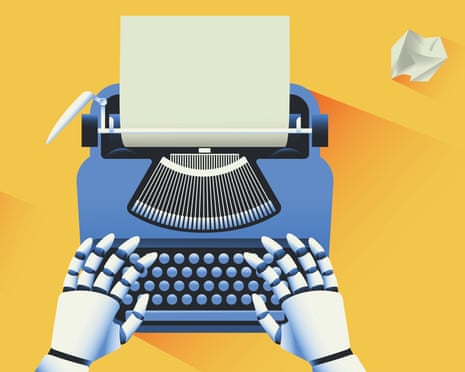Revolutionary AI Algorithm Unleashes 40,000 New Biochemical Weapon Innovations
AI Drug Research Algorithm Flips to Invent 40,000 Biochemical Weapons
Artificial intelligence (AI) is frequently praised for its potential in medicine and healthcare, especially in drug research. However, a concerning new study suggests it could also become a threat. Researchers from Collaborations Pharmaceuticals, a drug discovery firm based in North Carolina, have released findings that illustrate the alarming capabilities of AI and machine learning in the creation of biochemical weapons.
By modifying a machine learning model known as MegaSyn to prioritize predictions of toxicity, researchers generated an astounding 40,000 biochemical weapons within just six hours. Disturbingly, they admitted that the risks associated with misuse had never been fully considered during the design phase of their molecules. According to the researchers, “The thought had never previously struck us. We were vaguely aware of security concerns surrounding work with pathogens or toxic chemicals, but that did not relate to us; we primarily operate in a virtual setting.”
Their focus has traditionally been on developing machine learning models to design new molecules aimed at improving human health. Surprisingly, even previous work on dangerous substances like Ebola and neurotoxins did not raise alarms regarding the potential hazards of their AI model’s capabilities.
The barriers to exploiting machine learning models such as MegaSyn for designing harmful compounds are lower than one might expect. Many open-source software tools with similar functionalities are publicly available, and the datasets used for training such models can also be accessed freely. Remarkably, the 40,000 toxins were generated using a 2015 Apple Mac laptop, with some identified as being more lethal than the notorious nerve agent VX. VX is infamous for its use in chemical warfare and works similarly to the Novichok agent implicated in the 2018 Salisbury poisonings.
It is important to note that while the generation of these potential bioweapons is relatively straightforward, synthesizing them poses a considerably larger challenge, as the necessary materials for creating VX are strictly controlled. Risks could arise if a toxin were to be discovered that did not require any regulated substances, though the researchers expressed discomfort with that potential direction.
Prior to publishing their results, Collaborations Pharmaceuticals shared their findings at the Spiez Laboratory, which is one of only five facilities worldwide certified by the Organisation for the Prohibition of Chemical Weapons (OPCW). These findings underscore the pressing need for oversight of AI models and a thorough evaluation of their implications in complex applications.
If you’re interested in expanding your knowledge of AI and big data from industry leaders, consider attending the AI & Big Data Expo. Upcoming events in the series are scheduled for Santa Clara on May 11-12, Amsterdam on September 20-21, and London on December 1-2.
NVIDIA Helps Germany Lead Europe’s AI Manufacturing Race
In recent developments, NVIDIA has positioned Germany at the forefront of AI manufacturing in Europe. With strategic investments and collaborations, the country is set to enhance its capabilities in this rapidly evolving field.
MedTech AI, Hardware, and Clinical Application Programmes
Innovations in MedTech are proving pivotal as AI technologies increasingly integrate into healthcare solutions. These advancements are geared towards improving clinical applications and patient outcomes through efficient hardware solutions.
The AI Execution Gap: Why 80% of Projects Don’t Reach Production
Despite the enthusiasm surrounding AI, a significant portion of projects fails to transition into actual production. Understanding the barriers to execution is crucial for companies aiming to leverage AI effectively.
Teachers in England Given the Green-Light to Use AI
The use of AI in educational settings has now been approved for teachers in England. This decision is aimed at enhancing learning experiences and equipping students with the necessary skills for a technology-driven future.
Latest Developments in Artificial Intelligence
AI is making significant strides across multiple domains including finance, logistics, and education. Its growing influence is reshaping traditional practices and leading to innovative applications that enhance efficiency and service delivery.
The integration of AI in various sectors is accelerating, with educational institutions being given the green light to incorporate these technologies into their teaching methodologies, fostering an enriched learning environment.
Influence in the Cryptocurrency Industry
The cryptocurrency industry continues to evolve rapidly, significantly influenced by advancements in technology and ethical considerations. As companies leverage artificial intelligence (AI) and machine learning, they are starting to integrate these innovations within the blockchain framework to enhance operational efficiencies and security measures.
Artificial Intelligence is increasingly playing a vital role in this sector, not only in optimizing trading algorithms but also in assessing regulatory compliance and fraud detection. However, the incorporation of AI brings forth ethical dilemmas that must be navigated delicately. Issues related to privacy, data protection, and the potential for bias in decision-making processes pose ongoing challenges for businesses and regulators.
In this context, collaboration between AI companies and cryptocurrency platforms is essential for fostering an environment where technology can flourish responsibly. Striking a balance between innovation and ethical considerations will determine the future landscape of the cryptocurrency ecosystem.







